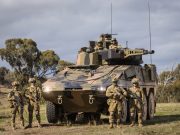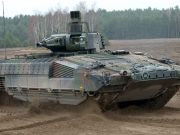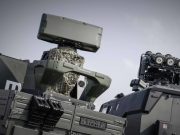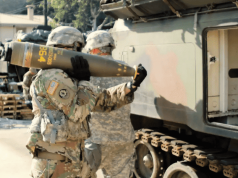
The US Defense Department has awarded contracts to four companies that will compete for individual contracts in support of the US military’s Joint Warfighting Cloud Capability.
The four companies include Amazon Web Services Inc., Google Support Services LLC, Microsoft Corporation and Oracle.
“This is a huge day for the department and what we can bring to our warfighters, particularly for areas like Joint All Domain Command and Control,” John Sherman, the DOD’s chief information officer, said.
The department announced plans for JWCC back in July 2021 and Sherman said it took 17 months of work by the CIO, the Defense Information Systems Agency, Washington Headquarters Service and others to arrive at contract award.
The Pentagon initially selected Microsoft under a single-company Joint Enterprise Defense Infrastructure (JEDI) Cloud program award in 2019, but cancelled the $10-billion effort in 2021. That is when work on the JWCC started.
“It’s been a been a lot of work to get here, and I’m proud of where we’ve landed,” Sherman said.
The JWCC is a multiple-award contract vehicle that allows the department to acquire commercial cloud capabilities and services directly from commercial cloud service providers.
“It brings us really cutting-edge cloud capabilities, to the entire department here,” Sherman said. “Very importantly, it brings us cloud computing at all three security classification levels: unclassified, secret and top secret.”
The DOD currently has other cloud computing capabilities, which are expected to remain complementary to JWCC. But those cloud capabilities don’t bring the breadth and depth that JWCC will have, Sherman said.
“We’ve got other types of clouds here within the department, but none of them do this at all three security classification levels, spanning the entire enterprise from the continental United States all the way out to what we call the tactical edge — way out, whether it’s Western Pacific or Eastern Europe or onboard a ship,” he said. “That tactical edge piece is very critical for our warfighters. Whether it’s, as I’ve noted, on a small coral atoll, or somewhere in sub-Sahara Africa or somewhere else.”
The JWCC contract also allows the department to have direct access to the four cloud providers, Sherman said, rather than having to go through an intermediary or a reseller.
“This creates for more efficient and effective leveraging of these capabilities,” he said. “And this is something we’re very excited about. So we’re leaning forward on this. This is a big day in the Department of Defense. It’s been a long, long journey to get here, and I’m very proud of what the team has done to provide this capability to the Department of Defense.”
The JWCC is an indefinite-delivery, indefinite-quantity contract vehicle which offers commercial pricing, or better, and streamlined provisioning of cloud services. As part of JWCC, warfighters will have the opportunity to, under one contract, acquire capabilities such as global accessibility; available and resilient services; centralized management and distributed control; ease of use; commercial parity; elastic computing, storage and network infrastructure; advanced data analytics; fortified security; and tactical edge devices.
Air Force Lt. Gen. Robert J. Skinner, who serves as the director of the Defense Information Systems Agency, said the department has more to be excited about than just the cloud capability that JWCC provides.
“We’re also really developing an environment,” he said. “That environment includes some great accelerators, as we call them — those capabilities that help enable our mission partners, those warfighters, to be able to leverage cloud a lot more than what they are today.”
One such “accelerator,” Skinner said, allows JWCC users to make use of pre-configured templates so that those less familiar with cloud computing will be able to make use of it in a much faster environment. He also said there is a cloud provisioning tool that enables users to manage accounts and how they use the cloud capability.
“If you look at this as one of many things that are going on within the department, as we improve the transport layer and how we’re transporting data, the integrated data layer that you’ve heard department leadership talk about, those, along with this cloud contract, and JADC2 … all those together really improve the resiliency, the capability and the readiness of the department, across the board, in support of those warfighters, whether they’re at the strategic level, or down in that foxhole,” Skinner said.


























